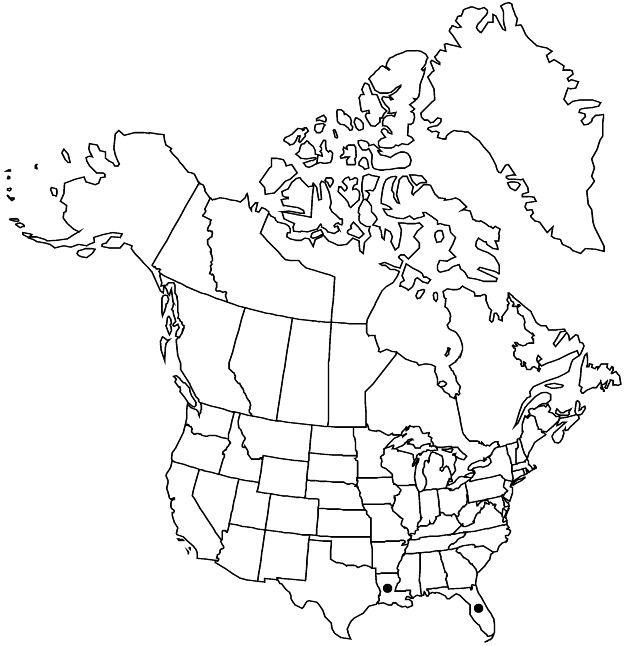Difference between revisions of "Turnera ulmifolia var. ulmifolia"
FNA>Volume Importer |
FNA>Volume Importer |
Revision as of 20:15, 24 September 2019
Subshrubs or shrubs, 0.5–2 m; hairs simple and glandular, glandular hairs microcapitate. Leaves not aromatic; petiole (1.5–)4–27 mm, with 2 apical nectaries; blade elliptic to ovate, 3.5–15 × 1.3–5.7 cm, base attenuate to cuneate, margins not revolute, serrate, apex acute or acuminate, surfaces pilose. Inflorescences epiphyllous, 2–4 cm; peduncle adnate to petiole; prophylls inserted at calyx base, ovate, 6–29 × 3–12 mm, often with nectaries. Flowers homostylous; calyx 14–30 mm, tube 5–16 mm; petals bright yellow, 14–30 × 7–20 mm; proximal part of filaments adnate by their margins to floral tube forming 5 nectar pockets, 11–21 mm; anthers basifixed; styles 8.5–21 mm. Capsules globose, 3–8 mm, granulose. Seeds blackish, 2.1–3 × 0.8–1.1 mm; epidermis smooth; aril unilateral, 1.8–3 mm. 2n = 30.
Phenology: Flowering and fruiting Mar–Dec.
Habitat: Sheltered locations
Elevation: 0–10 m
Distribution

Fla., La., s Mexico, West Indies, Central America, introduced also in Asia, Africa, Madagascar, Indian Ocean Islands, Pacific Islands, Australia.
Discussion
Variety ulmifolia is often planted and has probably escaped from cultivation in various locations.
Selected References
None.